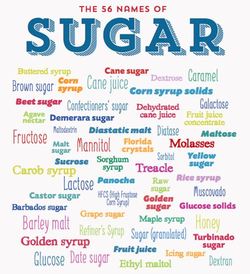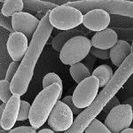What is it ?
Diabetes is raised blood sugars (glucose). There are two types of Diabetes;
Type I - which is where the pancreas can’t produce enough insulin to control blood sugars. Type I Diabetes is also known as insulin controlled diabetes as the patient has to use medication to introduce insulin to the body, to perform its role.
Type 2 - the body’s cells can’t react to the insulin produced.
What does insulin do ?
Insulin is a vital hormone produced by the pancreas gland. It acts as a vehicle, transporting glucose into our cells which in turn give us energy. If we do not produce insulin the glucose (fuel) can’t be transported so we lack energy, and also the glucose will then remain in the blood stream to be reprocessed by the kidneys.
Interestingly, the high glucose in the urine will leach water from the bloodstream, hence the increased urination in diabetics, and the associated thirst.
The failure to assimilate glucose will lead to the body using other sources of energy eg. Fat cells, which produces Ketones. These Ketones and the raised blood glucose will make an individual feel very unwell.
Blood glucose level stays between 3.5 mmol/L and 7 mmol/L.
What are the symptoms ?
Fatigue, extreme thirst, weight loss, muzzy headed, sweating, low mood, dizziness, tingling in the hands, increased urination.
So why do Diabetics gain weight, if the symptoms are weight loss ?
It’s all about balancing the books ………
We eat some food so our blood sugars, a Type I Diabetic injects insulin to do the job of the pancreas, and allow the body to use the glucose for energy.
BUT the patient has over-eaten and does not exercise.
The excess glucose will be converted and stored, leading to weight gain, which balances off the blood sugars again.
Also, the more body fat we produce, the more resistant to insulin we are, so it has to be tailored as we gain weight, which many patients don’t do, or health professionals overlook.
This weight gain and increased insulin resistant as a result causes a vicious circle, and as the weight goes up, so other health conditions evolve, for example:
Less exercise due to weight gain = increased insulin resistant = weight gain.
Joint problems = increased insulin resistant = weight gain.
Heart Disease = increased insulin resistant = weight gain.
Some patients manipulate their insulin to suit their food, so they can over-indulge, so the excess glucose is then stored as explained above.
Seems bleak doesn’t it, but it is all about choices really and balancing the books. If you choose to be a victim of diabetes you could fall into the weight gain trap, or you can master the disease and manage your lifestyle and diet, to help prevent the above problems.
So, how do I keep healthy with diabetes and avoid the weight gain ?
http://euro-wabb.org/en/diabetes-information-all/hypoglycaemia
http://www.mayoclinic.org
http://www.diabetesselfmanagement.com
#Diabetes#Support#Diet#Faversham#Whitstable#Swale#blood#sugars#weight#loss#PCOS#nutritionist#dietician#intolerance#testing#kent#Dover#herbalist#apotheca#botox#healthy#eating#support#ibs#ibd#colitis#acid#reflux#hernia#



 RSS Feed
RSS Feed